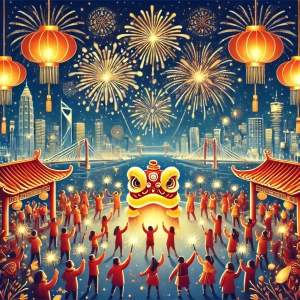
New Year’s Day, marking the first day of the Gregorian calendar, has origins tracing back to Roman times. In China, although not as deeply traditional as the Lunar New Year, it has been recognized as an official public holiday since 1949, symbolizing new beginnings and hope. The term “Yuan Dan” translates to “the first day,” with “Yuan” meaning “the beginning” and “Dan” meaning “day.” Traditionally, it referred to the first day of the first month in the lunar calendar. Since the founding of the People’s Republic of China in 1949, January 1st has been celebrated as New Year’s Day, also known as “the solar year,” “the new calendar year,” or “the Gregorian year.” New Year’s Day 2026 will be celebrated on January 1st.
In China, New Year’s Day is typically marked by simple family gatherings. Many families come together to share breakfast or lunch, enjoying the company of loved ones. Evening entertainment often includes special TV programs like the CCTV New Year’s Concert. Historically, the term “Yuan Dan” referred to the first day of Lunar New Year, equivalent to the customs of today’s Spring Festival. Nowadays, the celebration of New Year’s Day has diminished, with more emphasis on celebrating the Spring Festival.
As times have evolved, so have the ways in which New Year’s Day is celebrated. Cities dazzle with large-scale fireworks and displays, attracting thousands of residents and tourists. Shopping malls and online stores launch New Year sales, drawing in consumers. Additionally, many people take the opportunity for short trips, taking advantage of the holiday to relax and travel.
Globally, New Year’s Day is recognized as a public holiday in many countries. Although celebration customs vary from country to country, it is universally seen as a fresh start. Among Chinese communities overseas, New Year’s Day is typically celebrated with gatherings and meals, maintaining cultural ties with their homeland.
Learn dates, customs, and celebrations of major Chinese holidays to effectively plan your vacations and trips.

 English (US)
English (US)